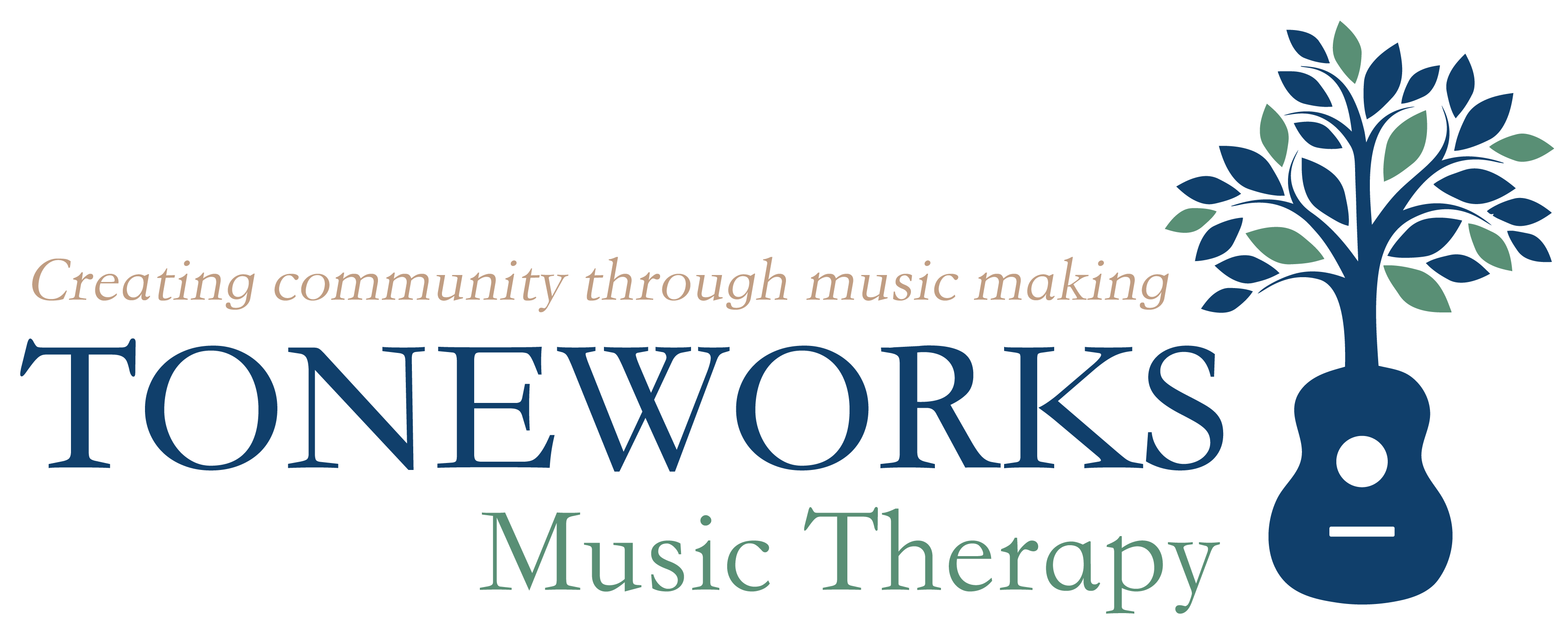Frequently Asked Questions
1What is Music Therapy?
Music Therapy is the clinical and evidence-based use of music interventions to accomplish individualized goals within a therapeutic relationship by a credentialed professional who has completed an approved music therapy program. (American Music Therapy Association definition, 2005)
2What do music therapists do?
Music therapists can assess emotional well-being, physical health, social functioning, communication abilities, and cognitive skills. According to the results of these assessments, they design therapeutic sessions for individuals and groups based on client needs. Interventions might include music improvisation, receptive music listening, song writing, lyric discussion, music and imagery, music performance, and learning through music. Music therapists also participate in interdisciplinary treatment planning, ongoing evaluation, and follow-up processes.
3Who can benefit from music therapy?
Children, adolescents, adults, and older adults can all benefit from music therapy. Common patient populations for music therapists include those with mental health needs, developmental and learning disabilities, Alzheimer's Disease and aging-related conditions, substance abuse, brain injuries, physical disabilities, and acute and chronic pain, including mothers in labor.
4Who is qualified to practice music therapy?
Persons who complete an approved college music therapy curriculum and a six-month internship are eligible to sit for the examination offered by the Certification Board for Music Therapists. Only upon completing this independently administered examination can a person hold the music therapist-board certified credential (MT-BC).
5Is there research to support music therapy?
Vast amounts of research exploring the benefits of music therapy can be found in the Journal of Music Therapy, Music Therapy Perspectives and various other peer-reviewed sources. Research continues to be a vital aspect of the constantly developing evidence-based practice.
6What are some misconceptions about music therapy?
Some people assume that the client or patient must have preexisting musical ability to benefit from music therapy. This is not the case. Music therapist can work with clients that have a variety of musical skills, from no musical experience to a career in music.
Another common misconception is that there is one particular style or genre of music that is more therapeutic than the rest. Any style of music might be useful in effecting change in a client’s life. Music therapists take into account individual preference and identified goals when determining what kind of music to use.
7How is music therapy utilized in schools?
Music therapists are often hired in schools to provide music therapy services listed on the Individualized Education Plan for mainstreamed special learners. Music learning is used to strengthen nonmusical areas, such as communication and physical coordination skills, which are important for daily living. Toneworks music therapists work in group and individual settings at schools all around the metro.
8Is music therapy a reimbursable service?
Music therapy is reimbursable through several avenues. Our services are most commonly covered by state and county waivers and grants (CSG, FSG, CADI, DD, etc), private insurance, health savings accounts, or private pay.
9What is the difference between music therapy and therapeutic music?
The most important difference between a Board Certified Music Therapist and an individual who uses live or recorded music to encourage therapeutic music listening is the required training. While anyone can perform or play music for a patient, a music therapist must attend a four-year accredited music therapy program, complete 1200 hours of clinical training, and sit for a board certification exam. A music therapist is trained to focus on patient preference, specific goal areas, and patient psychology. Music therapists are also qualified to document sessions, work within a disciplinary team, and provide ethical, client-centered care.
10What kinds of music instruments does a music therapist use?
Toneworks music therapists most often use guitar, keyboard, and voice in their music therapy interventions. Therapists also use percussion and rhythm instruments that are easily accessible to non-musicians. Recorded music is used with certain interventions.
11Who supplies musical instruments used in music therapy sessions?
In most cases, music therapists bring all musical equipment that is required for a therapy session. Music therapists may also use instruments provided by the facility or individual that they work for.
12Does a music therapy client have to be able to read music, sing, or play an instrument?
Since typical music therapy interventions address non-musical goal areas, clients do not need prior music training. If a client is interested in working toward specific musical goals, Toneworks music therapists are also equipped to provide adaptive music lessons.
13How quickly does music therapy produce results?
Immediate and quite apparent responses often result from individualized music therapy experiences. However, every client is different. The music therapist establishes goals for the clients and maintains documentation after each session to track progress and adapt future sessions to work toward their goals.
